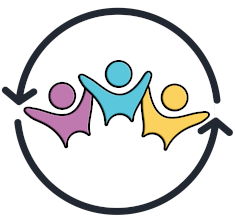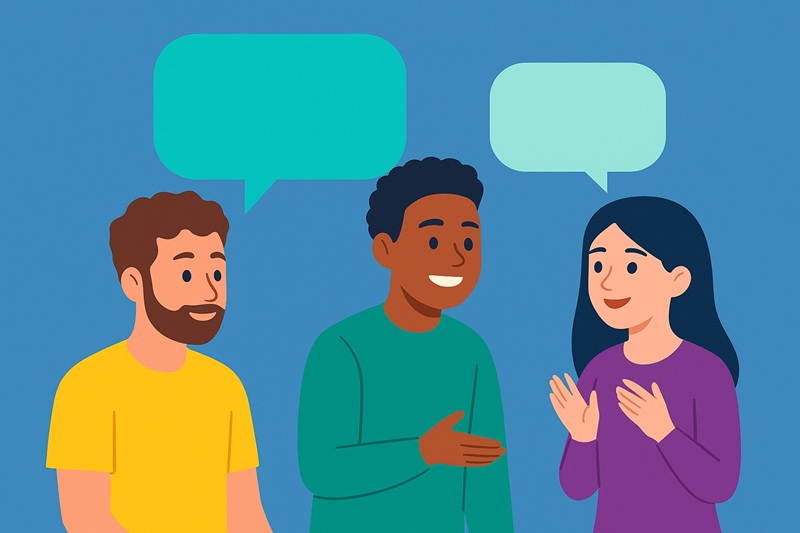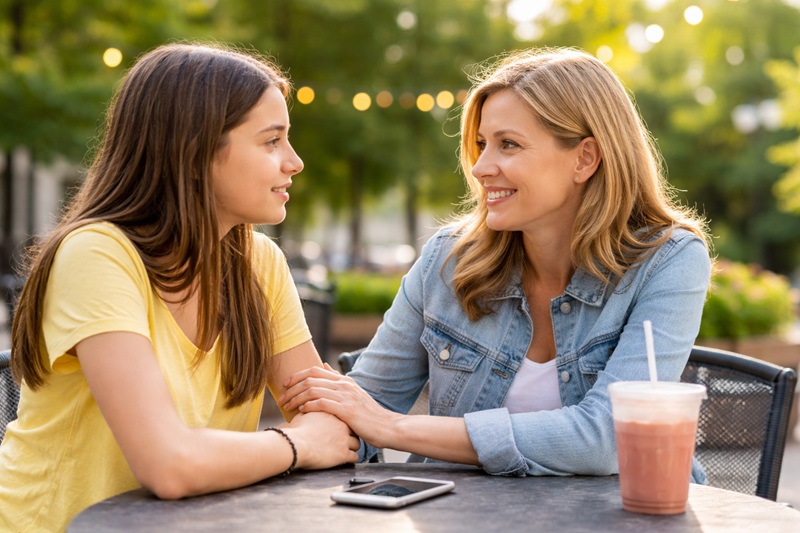Friendships are one of the most important parts of growing up — they shape confidence, create belonging, and open the door to independence. Yet for many teens and young adults with autism or mild disabilities, friendships are often limited to online spaces. Social media, gaming platforms, and messaging apps provide a comfortable place to connect, but caregivers often notice something missing: real-life interaction.
If you’ve ever wondered how to help your loved one move from screen-based connections to genuine friendships, you’re not alone. It’s a challenge many families face, and the good news is that there are clear steps you can take to bridge that gap.
Why Online-Only Friendships Aren’t Enough
There’s no denying that online communities can be a lifeline. They offer safety, shared interests, and acceptance without the pressure of face-to-face interaction. For young adults who feel anxious in social settings, chatting online can be an easier first step.
But while online friendships have value, they often don’t provide the full range of social growth that real-world experiences bring.
- Limited practice: Online conversations skip body language, tone of voice, and other key parts of communication.
- Risk of isolation: Too much screen time can deepen loneliness and make real-life interactions even harder.
- Shallow connections: Online friends may not always translate into dependable, everyday relationships.
That’s why building offline friendships is so important.
The Value of Real-Life Friendships
Real friendships go beyond chat bubbles and text threads. They bring emotional connection, shared experiences, and personal growth.
Emotional benefits
- Increased confidence from being accepted for who you are.
- A stronger sense of belonging and reduced loneliness.
- More resilience in facing challenges.
Practical benefits
- Opportunities to practice teamwork in school, work, or community settings.
- Support systems that encourage independence.
- Chances to explore new interests, hobbies, and career pathways.
When a young adult experiences the warmth of laughing with a friend in person, or the comfort of being supported through a tough day, it builds confidence that no screen can replicate.
Common Challenges Young Adults Face
If building in-person friendships were easy, everyone would already be doing it. For many teens and young adults, especially those with autism or mild disabilities, there are unique hurdles:
- Social anxiety: Fear of saying the wrong thing or being judged can make conversations overwhelming.
- Initiation struggles: Starting a conversation or asking to join in can feel like a mountain to climb.
- Fear of rejection: Past negative experiences may discourage them from trying again.
- Over-reliance on screens: When online worlds feel safer, it’s hard to step outside that comfort zone.
Understanding these challenges is the first step toward overcoming them.
How Caregivers Can Support Real Friendships
Caregivers play a powerful role in helping young adults build genuine connections. Here are a few strategies that work:
1. Create safe, structured opportunities
Look for clubs, community events, volunteer programs, or social groups designed for young adults. A structured environment makes it easier to meet peers with similar interests.
2. Practice at home
Role-play conversation starters, greetings, and responses. Practicing in a low-pressure environment builds confidence for the real world.
3. Model friendship in your own life
Show your teen or young adult what healthy friendships look like by letting them see you nurture your own connections. Actions often teach more than words.
4. Encourage independence gradually
Start small: invite a friend over for a short visit, then build up to group outings or independent activities. Step back as your young adult shows readiness, so they feel ownership of their social success.
5. Celebrate progress, not perfection
Every smile, handshake, or short chat is a victory. Highlight those wins instead of focusing on what didn’t go perfectly.
The Capability Connections Approach
At Capability Connections, we know how important friendships are to thriving in life. That’s why our programs are designed to bridge the gap between practice and real-world success.
- In-Person Socialization Groups: Fun, engaging sessions where young adults can learn and practice social skills in a supportive environment.
- Online Courses: Self-paced modules with real strategies to boost communication, teamwork, and confidence.
- Caregiver Support: Resources and tools that help families encourage and reinforce progress at home.
Our mission is simple: empower young adults to build independence, confidence, and meaningful connections that last.
Helping your teen or young adult move from online connections to real friendships isn’t always easy, but it is possible. With the right support, safe opportunities, and consistent practice, they can experience the joy of meaningful, lasting relationships.
Remember — friendship is a journey. Every step, no matter how small, brings your loved one closer to confidence and connection.
👉 Ready to take the next step? Subscribe to our YouTube channel for practical tips, or take our free Social Superpower Quiz at https://capabilityconnections.com/whats-your-social-superpower/



